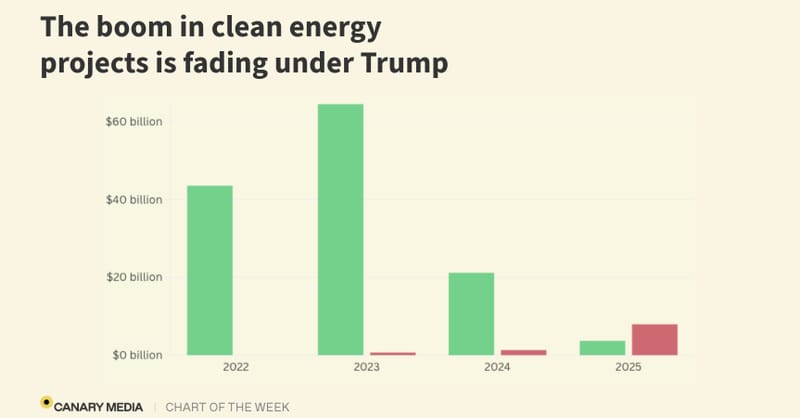Green Industry in Peril: How Trump's Policies Are Derailing America's Clean Energy Manufacturing Boom

In a stunning reversal for the clean energy sector, U.S. companies have pulled the plug on nearly $8 billion worth of green energy projects during the first quarter of this year. The widespread cancellations, predominantly affecting manufacturing facilities, signal a significant shift in the renewable energy landscape.
These project cancellations represent a dramatic downturn for an industry that had been experiencing remarkable growth and optimism. Factors such as economic uncertainties, supply chain challenges, and changing market dynamics appear to be driving this unexpected retreat from clean energy investments.
The scale of these cancellations is particularly noteworthy, suggesting deeper challenges facing the renewable energy sector. Investors and industry experts are now closely watching how these developments might impact the broader green energy transition and future infrastructure plans.
While the reasons behind these project cancellations are complex, they underscore the volatile nature of emerging technologies and the ongoing challenges in scaling up sustainable energy solutions. The clean energy sector will need to demonstrate resilience and adaptability in the face of these setbacks.
